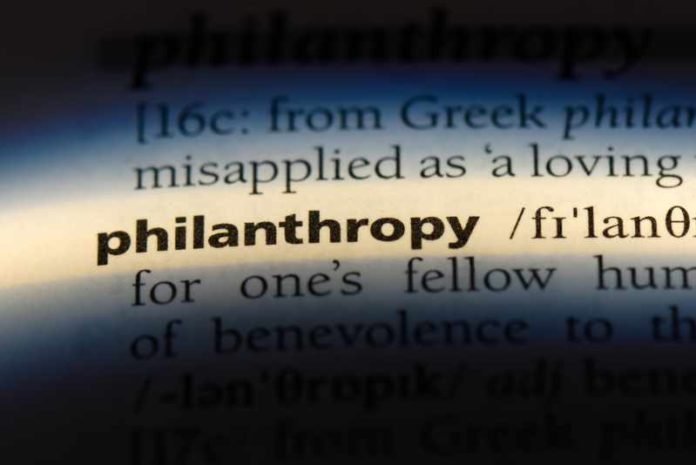The new year is just around the corner, serving as a timely reminder to start thinking about new business goals. An upgraded approach to corporate philanthropy should be among the priorities you consider.
Engaging in philanthropic efforts is the right thing to do, and more. It puts your values into action, benefits your community and broadens the perspectives of your employees. I’ve experienced this personally, as my commitment to nonprofits working to end youth homelessness has grown in recent years. In addition to being personally rewarding, it has reminded me that working toward a common, charitable goal can quickly turn strangers into teammates.
This bonding effect is a compelling business case for corporate philanthropy. Strong corporate culture is built on unity, rooted in a strong team connection and driven by a sense of purpose, and philanthropy helps establish and maintain these characteristics. Here’s why:
- Philanthropy fosters a purpose-driven culture. Rallying around a shared philanthropic goal gives employees the opportunity to contribute to something bigger than themselves. The purpose employees feel during these moments of service doesn’t stop there – they carry it back into the office, invigorating the work they do.
- It creates loyalty and commitment. In tight labor markets, this is especially important, and in my experience, it’s impossible to walk away from a company volunteering activity without feeling engaged and inspired as my colleagues and I work together to invest in our community. It’s no surprise employees involved in their company’s volunteer program are 28 percent more likely to be proud of their company’s values and 36 percent more likely to feel stronger company loyalty. A 2016 survey from Cone Communications shows that 75% of millennials would even be willing to take a pay-cut to work for a values-driven company. In my job at SAP Concur, I help SMBs with the tools and insight they need to better manage cashflow, and I see retaining talent as another major opportunity to set a growing company up for future success and financial stability. By fostering loyalty and a sense of commitment, philanthropy supports talent retention and recruitment, positioning companies for continued growth.
- It builds employee bonding and collaboration. If you’re looking to build inter-departmental camaraderie, few things work better than coming together to roll up your sleeves for a good cause. Employees get to know each other in a different light, leading to stronger bonds that translate to improved collaboration in work environments.
There are other benefits from increasing your organization’s philanthropic footprint. Also according to Cone Communications, approximately 87 percent of U.S. consumers report they’d purchase a product from a company because they advocate for issues that are important to them. This demonstrates that your philanthropic programs, which show your company has a long-term vision that goes beyond profit, might even attract new customers and investors.
One thing to keep in mind to structure a philanthropic program that meshes well with your offerings or services. A great example is Booking.com’s Booking Cares program. Tapping into their tourism skillset, their employees partner with local organizations to help improve 120,000 travel destinations around the world. They do it by helping preserve and promote local cultures, and by protecting natural resources in these destinations, among other contributions. I love how this program empowers employees to use their work skills in a broad-reaching, purposeful way that directly relate to the company’s core values. That said, corporate philanthropy doesn’t have to be strategically structured to make an impact. It can be as simple as giving employees time to support their local communities. Airbnb’s Global Volunteer program provides employees with four hours of paid time off every month to volunteer in their local communities. In addition to ongoing philanthropy efforts, jumping in to lend support to communities in real-time is also a powerful way to make an impact. For example, The UPS Foundation responds to natural disasters, lending UPS’s logistics expertise to quickly assist in delivering humanitarian aid and relief.
When looking to incorporate philanthropy into your workplace, start by considering how to bring your company’s core values and employee strengths together to make an impact. Volunteering in an authentic, intuitive way makes giving back become a natural and complementary extension to the work you’re already doing. Whether you go big or start small, corporate philanthropy is a win-win for your company and the community.
Ben Brewer is Senior Vice President and General Manager of the global Small to Medium-sized Business (SMB) division at SAP Concur, one of the world’s largest providers of integrated travel, expense, and invoice management solutions. In this role, Ben leads a sales organization of nearly 1,000 employees throughout North America, EMEA, and APAC.
Philanthropy stock photo by Casimiro PT/Shutterstock







